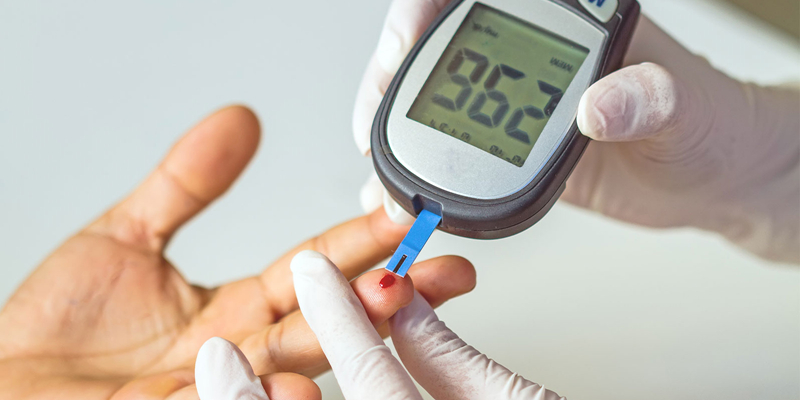6 Tips to Manage Stress for Better Cardiovascular Health
6 Tips to Manage Stress for Better Cardiovascular Health
Stress can take a toll on our health, especially cardiovascular health. As your awareness and interest grow in protecting your heart, you may desire simple but effective ways to manage stress.
The good news is that small lifestyle changes can make a big difference. In this blog post, we'll share six tips to manage stress for better cardiovascular health.

6 Expert Tips for Stress-Free Living
Managing stress is critical to maintaining heart health. Unmanaged stress can raise blood pressure and heart rate, increasing the risk of heart disease over time.
Below, we share six research-backed tips to help you manage stress for the sake of your ticker.
1.Get Moving to Uplift Your Mood
Are you experiencing a stressful day? Lace up your athletic shoes and go for a brisk walk instead of taking the stress out on your heart!
Regular exercise provides a healthy outlet to burn through daily irritations while delivering measurable heart health benefits. Aim for at least 30 minutes daily of moderate physical activities like walking, swimming or dancing.
Exercise reduces levels of stress hormones like cortisol while releasing endorphins, the body's natural "feel good" chemicals, leaving you feeling more calm and positive. Additionally, consistently active keeps blood pressure, cholesterol levels, and body weight optimised to support cardiovascular wellness.
So, next time you feel stressed, get moving to let your mood catch up to the health perks!
2.Prioritize Sleep to Recharge Emotional Resilience
You know that saying "never go to bed angry"? It turns out that harbouring daily irritations overnight can interfere with cardiovascular health!
Quality sleep is essential in emotional resilience to help manage life's unpredictable stressors. Adults should aim for seven to nine hours of quality shut-eye per night.
Sleep is prioritized by keeping a consistent sleep-wake cycle and limiting digital stimulation after dark. Quality rest leaves you refreshed to greet each new day with a lower baseline stress level, keeping your heart happier long term!
3.Nourish Your Body with Heart-Healthy Foods
Stress and poor diet, unfortunately, often go hand-in-hand - think of diving into junk food after a terrible day. Counteract this impulse by intentionally nourishing your body with nutritious whole foods to maintain stable moods during stressful times.
Limit inflammatory processed foods high in sugar, unhealthy fats and sodium. Instead, fill your plate with anti-inflammatory choices like vegetables, fruits, whole grains, lean proteins and healthy fats like olive oil.
Proper nutrition provides energy and optimism to help you better navigate daily stressors and directly benefit cardiovascular wellness by optimizing blood pressure, cholesterol, and weight.
4.Find Healthy Outlets to Unwind
Between work, relationships and finances, your schedule likely brims with obligations. Carve out time for hobbies that soothe and replenish you emotionally - whether jamming to music, playing with pets, gardening, journaling or laughing with friends.
Build these outlets into your routine for an emotional lift to maintain a calmer, more positive perspective during stressful times.
Protecting your mental health strengthens your resilience against the cardiovascular impacts of stress in the process!

5.Incorporate Deep Breathing Daily
Taking time to breathe may sound too essential to make a difference - but the healthy habit taps into robust bodily responses!
Deep, diaphragmatic breathing stimulates the parasympathetic nervous system to prompt deep muscle relaxation while lowering blood pressure and heart rate.
Five to 10 minutes daily focusing on slow, measured inhalations and exhalations makes a measurable impact.
You can practice independently, follow a guided meditation app or join a yoga class to couple breathing with gentle movements.
6.Know Your Limits to Avoid Going on Overload
Periodically take stock of your schedule and habits to maintain self-care alongside your obligations. Protect adequate time for healthy stress management basics like sleep, nutrition, exercise and emotional outlets.
Don't overcommit yourself to the point of exhaustion - pay attention to signs of anxiety, fatigue, moodiness or burnout. Be ready to say no to additional responsibilities when you near your bandwidth. Listen when your mind and body signal a need to pull back and recenter.
Protecting your limits ensures you maintain daily balance to keep cardiovascular health thriving.
Final Thoughts
Managing emotional stress through daily lifestyle choices empowers us to protect cardiovascular well-being. Small steps can make a meaningful difference.
We hope these six tips help you journey toward better heart health.











